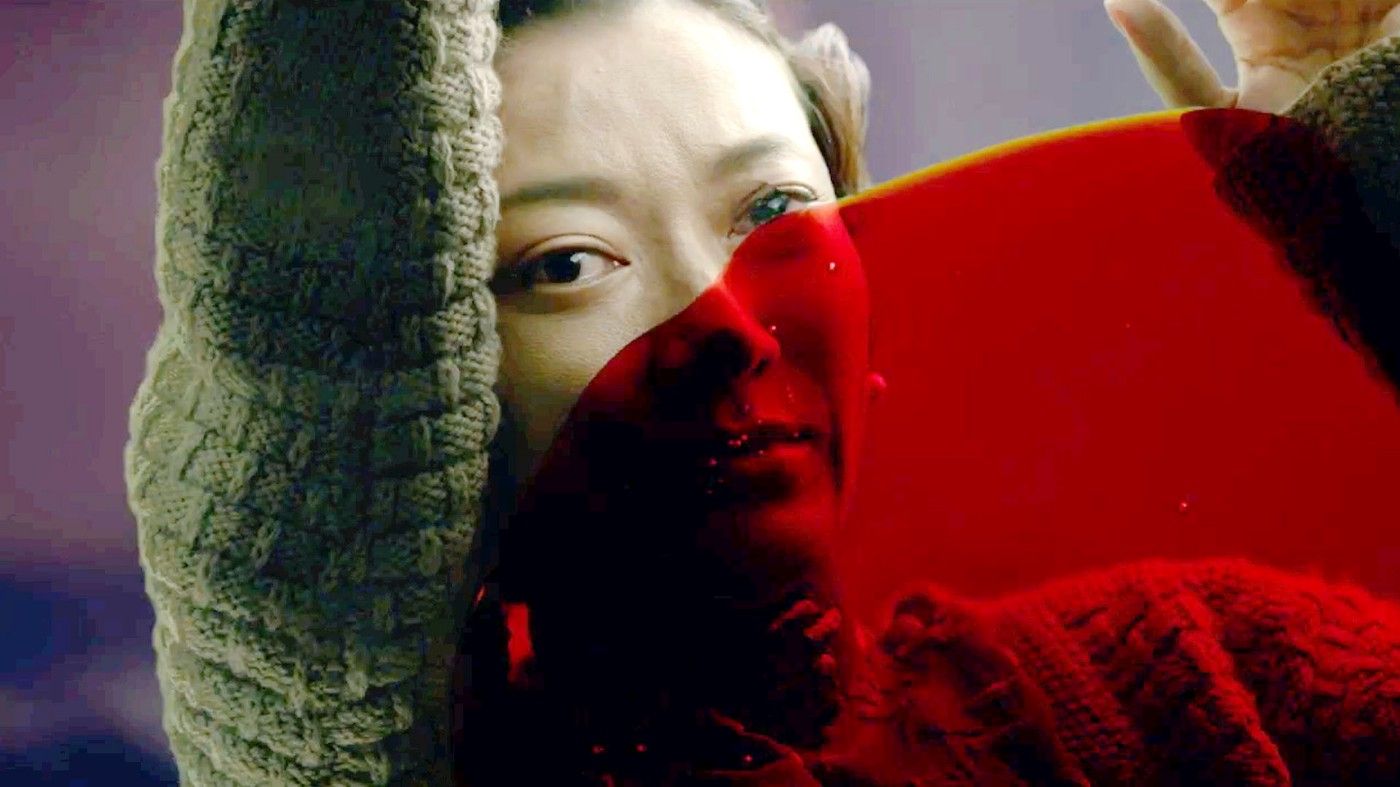The Wasted Times (Cheng Er, 2016)

The Wasted Times was originally slated to be released in October of 2015. The film’s trailer has been playing before presentations of Chinese-language films here in North America for at least that long, but the film kept getting pushed back. There was speculation it might make the rounds of the fall film festivals (Vancouver, Toronto, etc) but when that didn’t happen, the film simply dropped off my radar. Then, when checking the listings for this week, there it was, playing on a single screen at the AMC Pacific Place, distributed by the good people at China Lion Film. And the movie provides exactly what that trailer promised: a ravishingly odd tale of 1930s Shanghai, interwoven stories of gangsters, actresses and the Japanese military, with superstars Zhang Ziyi and Asano Tadanobu looking impossibly cool and fashionable, all tinged with a self-conscious meta-humor. That last element is provided by an exchange in the middle of the film, reproduced in full in the trailer, when one of the actresses is describing the movie she’s working on to a friend:
Friend: I don’t get it.
Actress: Neither do I. The Director never wants us to get it. This is an art film, made for the 21st century.
Friend: We’ll all be dead by then. It has nothing to do with us.
Actress: You’re right.
We’ll, fool that I am, I’m going to try to make sense of it anyway. Spoilers ahead.
The film begins in 1937 in Shanghai, on the verge of the beginning of open war with the Japanese. We’re introduced to the handful of men that run the city’s criminal enterprises, most importantly Mr. Lu (Ge You) and Watabe (Asano). Watabe is Japanese, but has been living in Shanghai for so long everyone treats him as Chinese, and he’s married to Lu’s sister. The gangsters are approached by the Japanese military to form a partnership. Most of the Chinese don’t want to go along, so with the help of a collaborator (or two or three), the Japanese kill them all, along with their families. Only Lu survives, taking with him Watabe’s two sons. To find out what exactly happened, why, and how revenge will be taken, we then flashback to 1934 and the story of two actresses, Liu and Wu, played by Zhang Ziyi and Gillian Chung, respectively. Chung is a successful actress whose less successful husband, whom she loves deeply, is bribed to leave town by one of the gangsters, so that said gangster can have her. Zhang is sleeping with the boss of Shanghai’s underworld, but has an affair with her director and, rather than have her killed, Lu persuades the boss to send her and the director into exile in the north. Watabe is tasked with this, but rather than send her away, he kills the director and locks Zhang in his basement, where he keeps her for the next decade or so, until he ends up fighting in the Philippines. We see how their stories play out during the war, with Chung abetting the assassination of her gangster, and Zhang the killing of Watabe in a POW camp after the war has ended. In both cases, Lu facilitates the woman’s revenge, or conversely, the women are the means by which Lu revenges himself on the former partners who betrayed him. Either way, it’s a story of the women, so often the casual victims of the kinds of men movies make heroes out of (spies and gangsters, schemers and war heroes), inflicting punishment on their abusers, with Lu’s role in the events providing a degree of uneasiness: the film resists the simple catharsis of the rape-revenge film, suggesting that, for these women, there may be no real escape from the clutches of evil men.
This is Cheng Er’s fourth feature film, and I’ll admit I know almost nothing about him. In addition to directing, he also wrote and edited The Wasted Times, as he did his last feature, 2012's Lethal Hostage. His eye for composition is impeccable: all the praise being heaped upon the look of Park Chanwook’s The Handmaiden applies just as well to this film, with perfect right angles, flowing overhead shots (images of pre- and post-war Shanghai are especially striking), precise movements of careful characters within meticulously designed spaces. In its pre-war Shanghai setting and convoluted plot, the film recalls Jiang Wen’s film maudit Gone with the Bullets (which also starred Ge You), but it lacks Jiang’s gonzo lunacy. The slicing up of the plot into different sections, and flashes back and forward within those sections, makes sense emotionally and by the end of the film everything seems to come together, but it’s devilishly hard to follow what’s going on at the time the events on-screen are unfolding, especially as seemingly important characters come and go quite abruptly, some to return in the past or future, and some not. Compared to the relative simplicity of The Handmaiden‘s plot structure, with its repetitions and reiterations designed to always keep the audience knowing where the are, The Wasted Times is downright experimental. While that can be understandably frustrating, nonetheless it remains one the singular achievements of this movie year.
